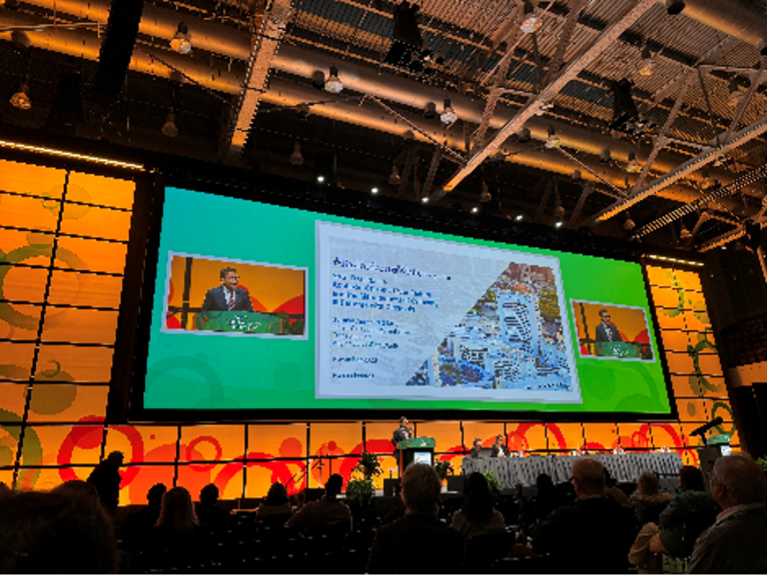Physician-researchers from Baylor Scott & White Health played a prominent role at the American Association for the Study of Liver Diseases (AASLD) The Liver Meeting 2023, held Nov. 10-14 in Boston. They presented the latest insights from one of the largest multispecialty transplant centers in the nation: Baylor Scott & White Annette C. and Harold C. Simmons Transplant Institute in Dallas.

Sumeet Asrani, MD, MSc, chief of hepatology and liver transplantation at Baylor Scott & White Annette C. and Harold C. Simmons Transplant Institute, was selected to deliver the Dr. Starzl State-of-the Art Lecture as keynote speaker. Dr. Asrani presented Liver Transplant for Alcoholic Liver Disease (ALD): Triumphs and Challenges. He discussed the clinical pathway and future management of ALD, as well as Baylor Dallas’ multidisciplinary alcohol liver disease clinic, the first of its kind in North Texas. Dr. Asrani also highlighted the work of the Baylor University Medical Center at Dallas and Baylor Scott & White All Saints Medical Center – Fort Worth 2019 consensus conference that brought together experts from around the world to develop guidelines on how to manage patients with alcoholic liver disease.
Dr. Asrani also presented the first AASLD guidance on acute on chronic liver failure and the management of critically ill patients with cirrhosis. The session covered recently published data complemented by new guidance for clinical providers in recently finalized or published AASLD practice guidelines. Attendees learned about the diagnosis and treatment of patients with acute on chronic liver failure, portal hypertension in patients with cirrhosis, and procedures for the management of variceal hemorrhage.
Anji Wall, MD, PhD, a transplant surgeon on the medical staff at Baylor Dallas, presented Greatest Potential for Near-Term Growth in Liver Transplant: Marginal Organs and Machine Perfusion. Dr. Wall discussed options for expanding the donor pool, which includes the use of new organ preservation systems, such as normothermic regional perfusion (NRP). These preservation systems have greatly expanded options for accepting donor livers, especially extended criteria livers that may not have been accepted in the past. Baylor Scott & White Annette C. and Harold C. Simmons Transplant Institute has one of the largest experiences with NRP in the United States.
In total, researchers and clinicians from Baylor Dallas and Baylor Scott & White – Fort Worth presented more than 20 abstracts, nine invited talks and oral presentations and one practice guidance statement. Additional topics presented included kidney dysfunction and liver disease, gender equity in liver transplantation and cardiovascular risk assessment in patients with liver disease.
“Our goal is to extend our legacy of research and innovation to advance patient care,” says Dr. Asrani. “The Liver Meeting is a wonderful opportunity to interact with our research collaborators from around the world and to highlight our research on the national stage.”
Baylor Scott & White Research Institute maintains a comprehensive research portfolio designed to study and expand options for management of all aspects of liver disease and explore innovations in abdominal transplant surgery, patient recovery and outcomes. This work includes studies focused on improving quality of life before and after a liver transplant, expanding the organ donor pool and investigational research for early diagnosis and treatment of a myriad of liver conditions, including liver cancer, fatty liver disease and alcohol use disorder.






